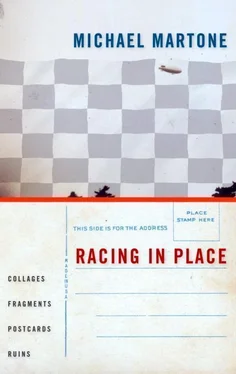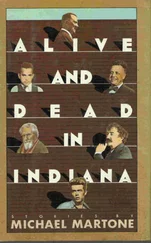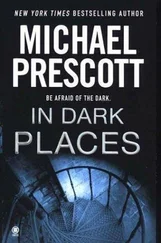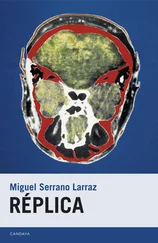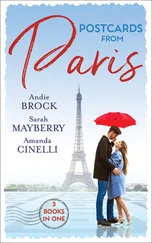A kid named Kevin was the best of the three students (there was a yearly competition) who held the position during the time I went to school. All arms and legs, Kevin added a twirling dervish turn to the movements, took his shirt off even during the late football season, danced around the lance (yes, there was a lance) he ceremoniously thrust into the ground. There was war paint too, on his face, red and white, the school colors, greasebased makeup streaked under each eye. The war paint had been applied over an initial coat of copper color he sponged onto all his exposed very white and freckly skin. Often the finish was splotchy, dappled.
Kevin didn't have enough time to get into makeup during the big riot. This was my junior year, the year the school system closed Central High School downtown, where my mother had taught English and been the dean of girls for nearly twenty years, and bussed its mostly black students out to the six white high schools around the city's edge. This was in the early '70s. The integration hadn't gone well, with every high school experiencing protests, beatings, fights, vandalism, and bomb threats. This was even true at the two new high schools, Wayne and Northrup.
At North Side the alienated black students staged a boycott of classes, and a schoolwide assembly was called by the fretting principal hoping to talk things out. We met in the gym. The football team and the cheerleaders were there, already clustered on the court with the frazzled administrators and coaches. The teachers patrolled the stands. Those squads on the floor had a semblance of harmony and order, having had to work together through practices in the summer. Kevin burst in, running halfdressed in his outfit, feathers flying, to his spot in the center of the floor. He was very white, I remember, without his makeup. He seemed to glow, reflecting the bright light of the new mercury vapor lamps just then reaching the peak of their illumination, having been turned on in haste as the crowds of students poured into the gym from all around the building. They shoved a microphone into his hands urging him to speak, and I remember thinking this breaks some unspoken code to which mascots adhere. The mute mascots were to remain silent on the sidelines as if they had appeared in our midst from some preverbal land where only pantomime, pep, and pumping fists were allowed. They are to always be illustrative in their stoic silence. Indians even more so.
But our Indian said something. Did he say to the throng of angry and frightened students packed into the bleachers that we were all Redskins? Did he say it? "We are all Redskins!" I hope he said it. And then he did the dance. Yes, he did the dance. A skeletal band had been mustered, the drums beating the tomtom and a trumpet blaring that warning staccato. We watched Kevin dance the dance.
I don't remember what happened then, but we all ended up dancing on the gym floor. Marvin Gaye was on the speakers. The Stones. Carole King. We were studying Tapestry in Mrs. Neuhaus's English class.
The cheerleaders reminded us to take off our shoes before we ventured out on the gym floor. We filled that floor. We were on the edge of a riot, on the verge of a party. The administrators began to look relieved. We didn't talk. What could we say? Dancing seemed like the thing to do at the time. We were so many, nearly two thousand, we couldn't do much more than mill in time to the music that didn't stop, it seemed, for hours. We danced that way, in a kind of trance, until the buses came.
The Mother's March
I went with my mother when she went door-to-door in the neighborhood, collecting for the March of Dimes. She let me push the doorbells. I liked the illuminated ones that blinked out when I depressed them. Mother and I would visit with many of the neighbors who invited us in for a chat and for something to warm us up. This was after the polio vaccines. We had all just taken the sugar cube the summer before. The charity had altered the focus of its appeal to birth defects, but most often my mother and our neighbors shared memories of polio-the closing of the river beach, the braces and the iron lungs, Roosevelt. I drank hot chocolate and sometimes got to play at playing someone's piano. At home, my mother would let me separate the big pile of coins we collected into smaller piles of pennies, dimes, nickels, and quarters.
"The first thing I did when I saw you for the first time was count your fingers and toes." She had been knocked out completely for my birth. I had been delivered with forceps. I picture her groggily counting my fingers and toes. They're all there.
Years later, I came to realize that during those treks through the neighborhood my mother regarded me as a kind of mascot. I was an emblem of her luck as a mother, both the charm that embodied the wish and the body itself charmed into existence. I was illustrative of the charity's objectives. See, all his fingers tickling the keys of your piano, depressing the buttons of your doorbells. I was no cartoon, no stylized rendering of the talisman, not even a poster child. I was just her son, but that was enough for metaphor.

Two Postcards
I have two picture postcards I picked up in Hannibal, Missouri. One has two boys equipped, as you'd suspect-Tom and Huck. Straw hats, bib overalls rolled at the cuff, bare feet. Backs to us, they are watching a steamboat, of course, cruise by on the Mississippi. Illinois, the card's caption says, is in the background. The other card shows the stern-wheeler Delta Queen, the last authentic steamboat, as it plies the same river. The view is from Riverview Park, Inspiration Point. They are old cards, maybe forty years old, published by the Becky Thatcher Gift Shop and printed in the USA. I got them in a bank that had been converted to a bookstore. The vault had been given over exclusively to the works of Mark Twain. The bookstore owner, a retired banker himself, swore the Huck of the postcard was his father. Hannibal is a strange town, stuck, as it were, in time. Stranger still since the time in which it is stuck is a fictional one. There are other such strange places like this-Green Gables, Sunnybrook Farm, Chincoteague Island-that have started out as actual places only to become fictional places and then became, well, real ones once again. Readers who journeyed to them in their reading now visit for real. The time of the fiction must be maintained within the present time. Life becomes a kind of perpetual permanent pageant. Hannibal also maintains an additional petrified, parallel time. Along with the reeenactors of Twain's books there are reenactments of Twain's last visit to his hometown a century ago. Then, he watched the fence being whitewashed by children recreating the children he created. Today you can see the same fence, the same whitewash, and children dressed the same way as they work. But also you see a "Mark Twain," a facsimile of Mark Twain, watch with you, see what you see.
General Delivery
Letters are from another time. I don't simply mean that any letter as an artifact preserved from the time of its making is from another time. Or that these letters written a century ago by Mark Twain and "S. L. Clemens" survive into our own present. I was thinking of the Letter itself, the technologies of its manufacture and distribution. Letters are like those stern-wheeled steamboats, floating museums, and almost as rare these days. Post offices retain that ancient feel as well despite their immersion in the systems of computers, scanners, and automated sorters. I ask that my postcards be hand-cancelled, the time and place of the actual transaction affixed by an antique rubber stamp and ink, the two-step thump of pad strike then stamp stomp. The Letter is handcrafted, hand-handled, hand-delivered. The PO, then, is a portal back to this past, a post of the past, a node of the analog embedded within the instant transmissions of the age. I am thinking of the Post Office, not the post-Post Office of the present Postal Service. When I vacation in Maine, I send my hand-cancelled postcards abroad with the request that my correspondents reply via General Delivery, attaching the addresses of nearby POs. During my stay, I return daily to the windows at Stonington, Deer Isle, Little Deer Isle, Sunrise, etc., and ask if there's any mail for me. And I love that the clerk is not surprised I am asking, asks my name, and turns to the pigeonhole that might contain the possibility. Wherever I go, I ask for the mail. You never know. I never know. Something might be waiting there with my name on it.
Читать дальше
